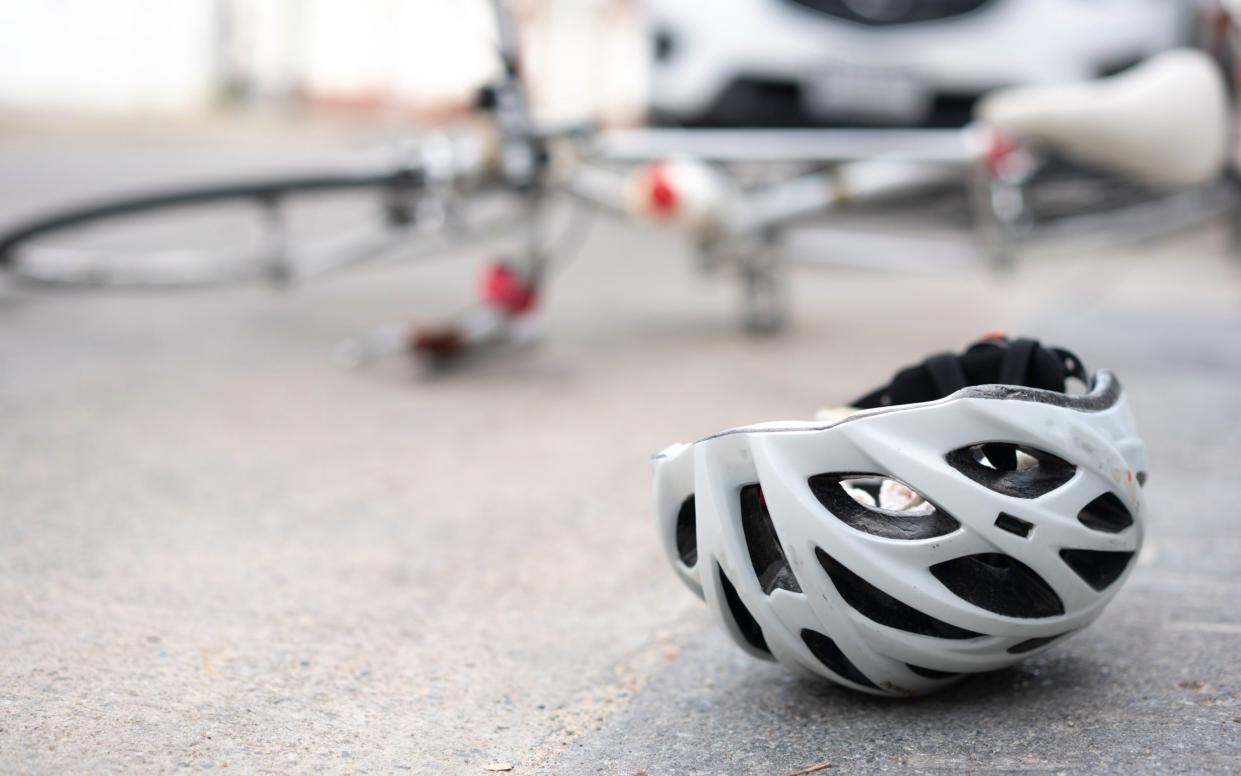Cyclists who kill or injure pedestrians face harsher prison sentences

Cyclists who kill and maim by riding dangerously or carelessly could be found guilty of new criminal offences and face harsher prison sentences similar to motorists under proposed law changes.
Sir Iain Duncan Smith has tabled a series of amendments to the Criminal Justice Bill that would lead to those riding pedal bicycles, e-bikes, electric scooters, unicycles and “personal transporters” facing new tougher penalties if they injure or kill pedestrians.
The senior Tory is hoping to close a loophole in the law that has seen cyclists who hit and fatally injure people only charged under a Victorian law intended for riders of horse-drawn carriages.
Under current legislation, a cyclist who kills while riding recklessly or dangerously can be jailed for a maximum of only two years under an 1861 law for “wanton or furious driving”.
In contrast, motorists face a life sentence if charged and convicted of causing death by dangerous or reckless driving.
Sir Iain’s amendments would see the creation of an “offence of causing death or serious injury by dangerous, careless or inconsiderate cycling”, as well as an offence of killing someone through “inconsiderate” cycling.
The amendments would also require a bike to be “equipped and maintained” to standards set out in the Act.
‘Wanton and furious riding’
Matt Briggs, whose wife Kim, 44, died in 2016 after a cyclist on an illegal fixed-gear bike with no front brakes collided with her, welcomed the move to try to update laws.
Charlie Alliston was jailed for 18 months for hitting Kim, a mother of two, and causing her “catastrophic” brain injuries.
He was cleared of manslaughter, which has a maximum life sentence, but found guilty of causing bodily harm by “wanton and furious riding”.
Mr Briggs, 52, said: “After seven years of campaigning alongside other families who have lost loved ones, I’m delighted and very grateful to Sir Iain Duncan Smith for his support.
“It finally seems we are making some progress. This amendment could bring a degree of comfort for families in knowing that they may not have to face the same legal trauma that my family - and others - have had to face after cyclists have caused fatal injuries.
“It would also act as a much-needed deterrent to ensure cyclists obey the rules of the road in the same way motorists are required to do.”
Sir Iain, the former Conservative Party leader who is himself a keen motorcyclist, submitted the amendments just days after The Telegraph revealed how a speeding cyclist doing timed laps in Regent’s Park was involved in a fatal collision with an 81-year-old woman but could not be charged with any criminal offence.
Brian Fitzgerald, a director at Credit Suisse, was in a “fast group” of cyclists doing up 29mph in a 20mph zone when Hilda Griffiths, 81, crossed the park’s road in London, apparently without looking.
Mr Fitzgerald, a member of the Muswell Hill Peloton cycling club, told a coroner they were travelling in an aerodynamic “pace line” formation to maximise momentum when he struck the retired nursery teacher walking her dog in June 2022.
Police concluded there was “insufficient evidence for a real prospect of conviction” and the case closed with “no further action”.
An inquest heard that cyclists are not required to obey speed limits.
Det Sgt Ropafadzo Bungo told Inner West London coroners’ court last Thursday there were “no specific” speed limit signs for cyclists and a police review found “there were no criminal acts which would allow prosecution” for cyclists who exceed speed limits.
The prospect of Mr Duncan Smith’s amendments making the statute books is reliant upon numerous factors.
The Speaker would have to select it among the many amendments to be put before MPs for debate in the House of Commons.
The issue, which is regarded as not party-political, would then have to go to a vote to decide whether or not it would be made into law.
Families of those killed have campaigned for new legislation amid fears that police are left with just the “wanton and furious” law and manslaughter, which has a maximum life tariff, as charging options.
Juries are unlikely to convict a defendant of manslaughter if the lesser charge is available to them.
The proposed amendments to the Criminal Justice Bill, currently going through Parliament, would see the Road Traffic Act 1988 updated to cover new and more modern forms of transport that have been promoted by the Government as part of its Active Travel policy.
Numerous towns and cities have seen the introduction of e-bikes and e-scooter trial schemes.
Ministers have repeatedly promised to update laws but have repeatedly failed to do so.

 Yahoo News
Yahoo News 
